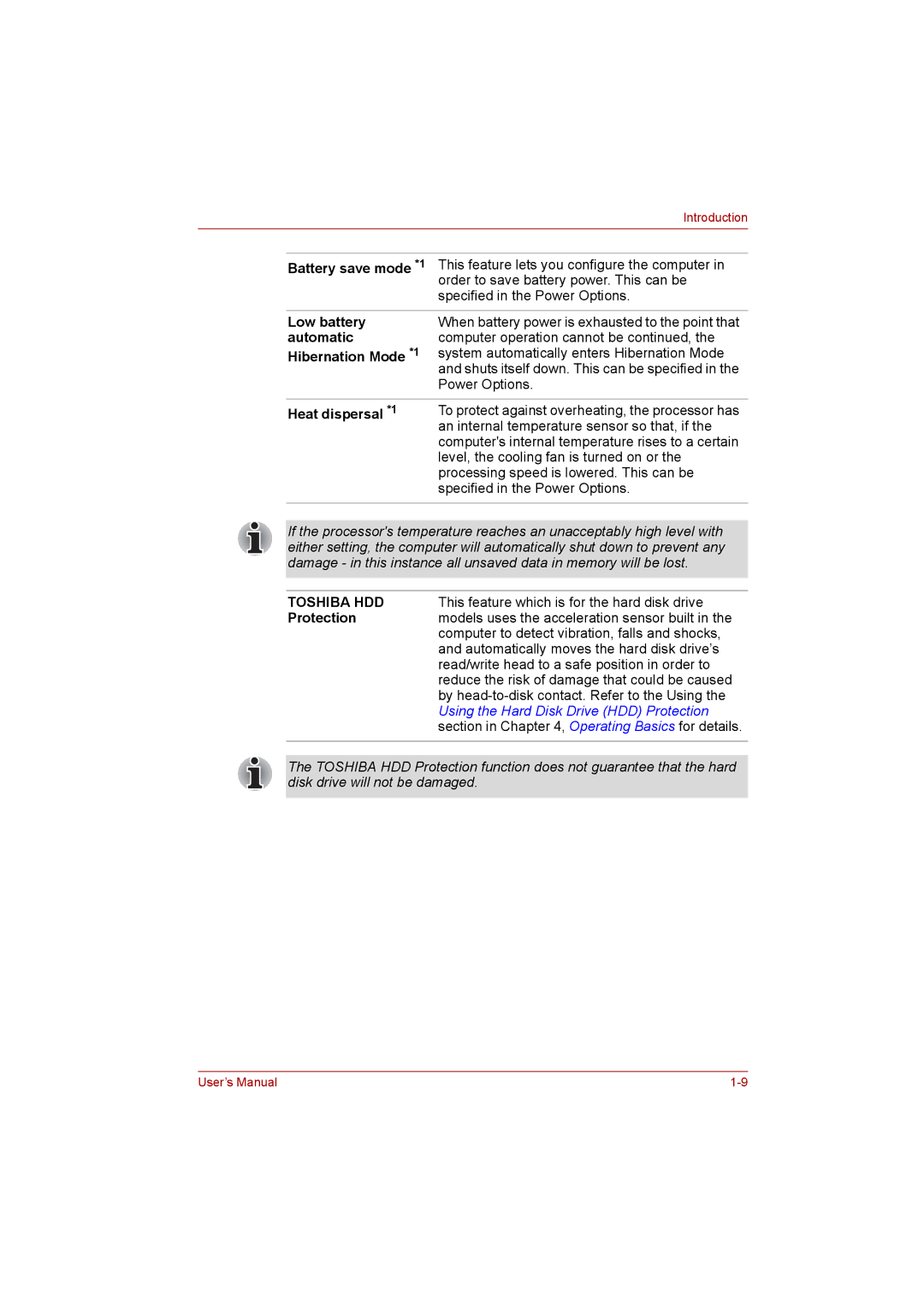
Introduction
Battery save mode *1 This feature lets you configure the computer in order to save battery power. This can be specified in the Power Options.
Low battery automatic
Hibernation Mode *1
When battery power is exhausted to the point that computer operation cannot be continued, the system automatically enters Hibernation Mode and shuts itself down. This can be specified in the Power Options.
Heat dispersal *1 | To protect against overheating, the processor has |
| an internal temperature sensor so that, if the |
| computer's internal temperature rises to a certain |
| level, the cooling fan is turned on or the |
| processing speed is lowered. This can be |
| specified in the Power Options. |
|
|
If the processor's temperature reaches an unacceptably high level with either setting, the computer will automatically shut down to prevent any damage - in this instance all unsaved data in memory will be lost.
TOSHIBA HDD | This feature which is for the hard disk drive |
Protection | models uses the acceleration sensor built in the |
| computer to detect vibration, falls and shocks, |
| and automatically moves the hard disk drive’s |
| read/write head to a safe position in order to |
| reduce the risk of damage that could be caused |
| by |
| Using the Hard Disk Drive (HDD) Protection |
| section in Chapter 4, Operating Basics for details. |
|
|
The TOSHIBA HDD Protection function does not guarantee that the hard disk drive will not be damaged.
User’s Manual |
